Update 2023 RCPCH Global
Royal College of Paediatrics and Child Health
Leading the way in Children’s Health

Royal College of Paediatrics and Child Health
Leading the way in Children’s Health
The Royal College of Paediatrics and Child Health – uniquely among the UK’s Medical Royal Colleges – incorporates both leadership in clinical standard-setting and a wider engagement with the health of children, wherever in the world they live. Working globally – through international humanitarian support in some of the world’s poorest countries – is written into RCPCH’s constitution. Since the mid-2010s, RCPCH Global’s portfolio of programmes has expanded significantly. This update provides an overview of where – and how – this is happening. The evolution of our programmes follows a common pattern:
Given the large scale of continuing need around the world – exacerbated in the aftermath of COVID-19 and wider international turbulence – the College must make choices about where to allocate scarce resources. That choice is determined by a number of factors, including: scale of need (generally we work in developing countries classed as ‘low- or lower-middle income’ countries)1; viability of operating environment (some acute humanitarian crisis, such as hot conflict, limit our ability to intervene meaningfully, especially where other agencies are better adapted for such environments); supportive government signalling interest in and appetite for better child health; presence of a partner paediatric agency (as critical lead for sustainable incountry activity and change).
Much of our initial work in a given country starts with technical training in aspects of clinical care – often in only one or a few selected hospitals. But that is only the start. Training on its own – without sustained supportive follow up delivered in situ in the facilities where trainees actually work – does little lasting good. Training may be a good entry point – building trust in RCPCH’s local relationships and credibility – but it serves as a platform on which we aim to extend in multiple directions:
• Extending from training to mentorship, within each facility on a continuous basis
• Extending from acute emergency management to ongoing management of paediatric cases; from paediatric care to neonatal survival; from neonates to mothers and to quality of perinatal care
• Expanding from individual hospital engagement to multi-sited multi-hospital support, fitted within national maternal, newborn and child health strategy
• Extending from hospital to primary care clinic, strengthening communication, supportive supervision, skills-building and enhanced referral practice
• Extending from secondary hospital care to more advanced tertiary centres, building the necessary clinical capability to manage the rising proportion of smaller, sicker babies and more severely unwell children as routine care improves
• Extending from hospitals and health centres to communities and households as rising survival around birth and in the newborn period lead to incidence of physical and neurodevelopmental disabilities and new dimensions of need in childhood and family support
• Expanding use of data and evidence from local facility audit and feedback to national technical working groups, ministry policy development and government child health strategy
1 Countries with an annual per capita Gross National Income lower than USD$4,086
‘Sustainability’ is the shibboleth of most international endeavours in human development and health. But it takes time. Superficial change, however impressive, can too easily be reversed or simply deteriorate over time. Our aim is to build long-term partnerships in selected countries – building our understanding of the context and supporting the leadership of our local counterparts. It is a strategy based on the belief that depth of relationships, of trust and credibility, is more important than breadth of presence, cycling rapidly from one country to another – and that that depth of engagement is at the heart of genuine sustainability as systems of health and care develop.


If child health is truly global, it can be acted on from anywhere in the world. From early days when we posted clinicians to work as volunteers in far-flung countries, we have worked to enlarge the way ‘global health’ is understood and delivered (see ‘word cloud’, below). There remains much work to be done ‘in the field’ – but as much and more by locally or regionally recruited clinicians sharing experience as by UK volunteers working with them in hybrid teams. And there is much to be done ‘at home’ too, in the UK and with partners in the developed world – to advocate for adequate international health aid; to provide remote support – revealed by COVID as a whole new dimension of international working – to local clinicians and researchers; to extend and enhance engagement across social groups at home – among minority ethnicities, immigrants and refugees – in the pursuit of greater equality, health and life chances.
In the following sections, we offer a brief overview of each of the major country programmes


RCPCH has worked in partnership with the Myanmar Paediatric Society for over a decade – supporting quality improvement across the country’s hospital network, and driving down avoidable mortality (ill. 1).
Our country partnership has expanded, over time, to incorporate multiple dimensions of health sector strengthening:
• Co-creating neonatal and paediatric guidelines through a joint RCPCH-MPS expert group in consultation with the Myanmar Medical Association and the Ministry of Health and Sports
• Converting paediatric guidelines into a smartphone app, easily accessible by clinicians at the bed-side – the ‘Emergency Paediatric Care Programme’ protocol endorsed and adopted by the then Minister of Health
• Reinforcing the linkages between classroom teaching and clinical practice through a pilot workplace-based learning and assessment project
• Developing collaborative research projects with local clinical partners to investigate the feasibility of paediatric early warning scores systems (PEWS) in nurse-led care, and exploring the potential for the development of ‘frugal technologies’ in facility-based neonatal care.
During the COVID pandemic, RCPCH Global pivoted to immediate support for frontline therapeutic services, working in partnership with MPS colleagues and UNICEF Myanmar.


Following the military coup in early 2021, we sustained our support to clinicians across the country struggling to continue life-critical child health care services as the national health system started to collapse. Our work responds to basic humanitarian needs, including through technical assistance and supply of essential medicines and equipment in remaining accessible areas (ill. 2).
But we also continue to work with doctors, nurses and midwives across Myanmar – as they organise facility-based, informal, ad hoc and pop-up health services for communities, families and children living under conditions of escalating resource scarcity and epidemiological risk. We are developing remote, virtual and field-based materials and methodologies to support continuing structured, multi-year nurse training and paediatric specialisation, at national scale wherever clinicians can get safely online, and in targeted minority ethnic territories.2 Because beyond the current crisis, as Myanmar recovers its democratic path, the need for functional health care –supported by new cohorts of confident, capable, qualified clinicians – will be critical.
RCPCH has worked in partnership with the Rwanda Paediatric Association (RPA) since 2012. From 2017, with support from UNICEF and James Percy Foundation, RPA and RCPCH developed the ‘Rwanda Neonatal Care Programme’ (RNCP) covering 12 government hospitals across the country and focusing on facility-based quality-of-care improvement.
In 2019, the programme incorporated an additional 7 hospitals extending quality improvement in maternity units (ROMP) as necessary counterpart to newborn intervention. The ‘Rwanda Perinatal Improvement Programme’ (RPIP) was the amalgamation of these two programmes, in 2020, building continuous perinatal care in 21 Referral, Provincial and District Hospitals (around half of the public hospitals in Rwanda), and extending to 96 primary care centres (ill. 3).







Over time, we have seen core clinical skills improve among doctors, nurses and midwives (ill. 4). Trained skills mean little, though, if they do not manifest in better care and improved outcomes. Over the same period, we have seen changes in clinician behaviour, with improved preparation for birth and for transfer between maternity and neonatal unit; frequency of nurse-led newborn observations in a 24-hour period on NNU more than doubling; and the proportion of hypothermic babies in maternity falling from 45% in 2019 to 12% in 2022 (ill. 5).

Ill. 5: % babies hypothermic on maternity, 2019-22
Over this period, neonatal mortality as a proportion of newborn admissions across 12 hospitals targeted by the programme (RNCP followed by RPIP) fell from 11.8% (2017) to 7.8% (2022), a reduction of 34% (ill. 6), faster than in comparable non-programme facilities. Mortality among neonatal admissions
Ill. 6: Newborn mortality as % of admissions, RNCP and non-programme hospitals, 2015-22
The RPA/RCPCH partnership in Rwanda is based on sustaining clinical and systemic change within each programme site and across the hospital network. We support localised use of performance data to guide improvement planning in each facility. Planning is led by local counterpart clinicians with support from senior leadership (ill. 7). Our programme aims to help strengthen (rather than duplicate) the national health information system, with an emphasis on enhancing the localised use of evidence to inform system strengthening strategies.

Our programme is designed to contribute to national maternal, newborn and child health strategies – working closely with the Ministry of Health and the Rwanda Biomedical Center.

Over the coming period, we will seek to further expand and embed our support, including:
• Structured neonatal nurse specialisation linking pre- and in-service training and professional development (ill 8)
• Increased support to respectful maternity care and high-quality delivery at primary and secondary levels
• Consolidation of QI evidence for scaling up effective methodologies across the country
• Increasing support to Ministry and RBC in auditing and managing equipment supply and maintenance
• Increasing collaboration with MoH, RBC, technical working groups and in-country partners to strengthen quality and utility of health care data, reinforcing positive change at the point of delivery

In 2021, RCPCH Global, in consultation with the Nepal Paediatric Association (NEPAS), UNICEF and the Nepal Ministry of Health, launched a new programme, building on experience in supporting emergency paediatric care in southeast Asia.
Initiated in Province 2 (ill. 9a & b), in partnership with the regional administration and the local chapter of NEPAS, the programme is designed to support system strengthening and quality improvement across a provincial network of district and referral hospitals.

The programme is designed in two streams:
• To develop national Nepali paediatric guidelines and protocols based on regional epidemiology and key causes of mortality and morbidity in the hospital setting –designed for national adoption – by a joint RCPCH-NEPAS expert consultative group
• To design, develop and deliver a field-base programme of continuous, in-situ care quality analysis and improvement planning – and to convene a team of local counterpart leads in each programme hospital to work with international mentors in implementing facility-specific improvement plans
With the completion of the initial programme phase, joint analysis has illuminated some key bottlenecks in improving care quality and paediatric outcomes e.g.:
• Significant disparity in capacity and throughput in a sub-set of larger referral centres compared with more numerous smaller facilities: an implication of this is that measures to rationalise care-seeking behaviour across available facilities – as well as ensuring effective ‘step-down’ processes from larger to smaller hospitals is in place – may smooth volume of demand for clinical care and improve outcomes
• The absence of a standard triage process results in haphazard care-seeking at the point of hospital access, likely worsening the condition of critical cases experiencing delayed access to care: an important early QI intervention, undertaken across the provincial hospitals, has been to work towards a common triage protocol, adapted to the circumstances of each facility
• There is a substantial opportunity in most of the programme hospitals to build on and consolidate previous investments in neonatal care capacity: this may include, as priority actions, rationalising existing infrastructure, equipment and layout in order to optimise the operating context within which to support development of clinical capabilities in the management of newborns
• Drawing on the suite of national paediatric guidelines, the programme will seek to work with and through NEPAS’ network of highly-skilled clinicians to mentor hospital colleagues in raising – and standardising – the clinical quality of care in relation to major drivers of child illness and death


RCPCH Global has worked in Sierra Leone since 2009, before the Ebola outbreak in 2014-15. Over this time, we have built robust local partnerships with the Ministry of Health and Sanitation, with international technical and donor partners, global and local NGOs, and with the Medical Superintendants, clinical leads, doctors, medical and community health officers, nurses, midwives who comprise Sierra Leone’s most precious health sector resource.
Between 2016 and 2020, we delivered a national programme, based on Emergency Triage Assessment and Treatment Plus (ETAT+), supporting system strengthening in critical paediatric care across the national network of government district and regional hospitals. During this time, aggregate paediatric mortality as proportion of admissions fell from around 14.5% to <9% (ill 11).

Ill.
Following sudden and deep cuts to UK aid globally, our programme of national support was discontinued. Having worked with Government and partners, however, ETAT+ has been adopted as a key component within the national child survival strategy – as has a counterpart QI protocol developed by RCPCH Global, ‘Caring for the Critically Ill Child’, designed to complement initial management of emergencies with highquality nurse-led post-admission paediatric care (ill. 12).
Having established such a strong network of relationships incountry, we stayed on after the aid cuts.
Ill. 12: ETAT+ continues to provide practical skills training

We have continued to work with colleagues in the Ministry of Health and WHO to sustain support to local leaders and clinicians across the hospital network using the principles and practical guidelines in ETAT+ as a framework for further strengthening of paediatric care in the secondary level (ill. 13)
And we collaborated with UNICEF and the postgraduate training division of the Ministry of Health and Sanitation to develop a neonatal training manual fitting international guidance to local conditions – a manual which provides the clinical and systems basis for much-needed development of neonatal and perinatal care in a country with persistently high rates of maternal and newborn death.

In 2022-23, RCPCH Global and UNICEF Sierra Leone, with the authorisation of the MoHS Child Health Team, agreed a new collaboration to design and carry out a single-district observational assessment of the quality of delivery of the national Integrated Management of Newborn and Childhood Illnesses (IMNCI) programme (ill. 14).
IMNCI is the backbone of primary care services in Sierra Leone (as in many other resource-poor developing countries).
Identifying bottlenecks in order to optimise the impact of high-quality IMNCI is going to be critical to maintaining and accelerating progress on child survival in Sierra Leone. This project – feeding directly into the Minister’s Child Health Survival Strategy – will contribute to that end.


RCPCH Global recently started a new programme of work in Lebanon in partnership with MAP (Medical Aid for Palestinians), the Palestinian Red Crescent Society (PRCS), the UN Relief and Works Agency (UNRWA), and the Palestinian Disability Forum (PDF) after receiving a generous donation to support Palestinian children. The programme aims to enhance the prevention, identification and management of developmental delays and disabilities in Palestinian children living in refugee camps across Lebanon.
Prevent Working with PRCS Central and 5 PRCS hospitals
Serving Palestinian camp communities in Lebanon to strengthen the quality of perinatal and neonatal care

Identify Working with UNRWA primary health care clinics
Reviewing existing neonatal, infant and child monitoring practices Identifying opportunities to strengthen monitoring of early child development outcomes
Identifying opportunities for the early detection of developmental delays and disabilities within the first 1000 days of life
Introduction (as required) of additional monitoring/screening tools to enhance identification of cognitive/developmental problems
Manage Working with UNWRA and PDF
Enhancing referral process for children with disability/ developmental problems to local organisations providing therapeutic care
RCPCH Global and MAP, in consultation with PRCS, have developed a perinatal care strategy to improve the quality of the care across the five major hospitals serving the Palestinian camp communities. Scoping has been completed and initial skills training and mentoring have already taken place at all sites. Alongside further skill-specific training and mentoring, the programme will support local teams to initiate, implement and monitor sustainable quality improvement initiatives on their units.
RCPCH Global and MAP have developed a pilot for the introduction and implementation of a monitoring and a screening tool for developmental delays and disabilities within UNRWA clinics for children aged 0 to 5 years old. The pilot will last for 18 months and focus on 5 out of 27 health centres operated by UNRWA with a view to expand to all 27 clinics in Lebanon.
RCPCH Global and MAP are looking to strengthen the referral pathways between UNRWA clinics, and the therapeutic organisations based in the camps across Lebanon and operating under the umbrella of the PDF. As a starting point, RCPCH and MAP are planning to undertake a large mapping exercise of the existing capacity in the various camps across Lebanon. We are currently applying for grants to fund this part of the work.

In addition to our core country programmes, RCPCH Global supports a number of other strategic international functions within the college and across the UK global child health community, including:
RCPCH Global manages an annual scheme recruiting, through open international selection, 10-12 paediatric clinicians from low- and middle-income countries to spend 2-3 months in the UK on a structured observership within the NHS. The VFS provides an opportunity to engage with college members and non-members internationally, and can form the basis of longer-term relationships and development of avenues towards programmatic partnership.
RCPCH Global supports the college’s MTI programme, in particular in core programme countries where we can support strategic linkages between local paediatric partner agencies and MTI opportunities in the UK.
RCPCH Global is now working with college members and clinical partners to conduct small-scale field-based analysis of quality of secondary neonatal and paediatric care in key strategic countries – India, Pakistan and Nigeria. The aim is to identify common challenges in the secondary level of care and to look for solutions which will enhance the contribution of local hospital networks to continuing child mortality reduction.
RCPCH has a powerful voice in defining and advocating standards for child health and care in the UK. But the imperative of child rights goes beyond borders. RCPCH Global works with multiple partners in the UK to amplify attention to issues critical to children’s health regardless of where they may find themselves. We work with colleagues in UNICEF UK and Save the Children, with the International Child Health Group, and in collaborative coalition with Medical Royal Colleges, universities and health research institutions. Our advocacy work focuses on key issues including: UK aid and global child health; global population mobility and the UK’s response to migrants, asylum seekers and refugees; domestic and international uptake of vaccines and immunisation; global strategies for health systems strengthening and the role of paediatrics.
We also seek to respond to humanitarian situations arising, for example collaborating with Ukrainian colleagues in the UK and convening a working group including the Royal College of Emergency Medicine (RCEM) and Cambridge University, to identify on-the-ground needs in delivering life-saving clinical care, and to develop and disseminate easily usable instructional videos for clinical and non-clinical users.
RCPCH Global seeks to leverage the expertise and long-term collaboration of many valued partners. Our thanks go to:


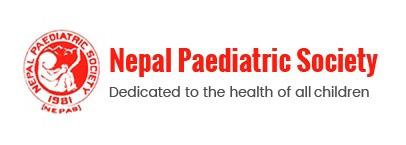



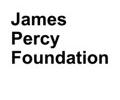

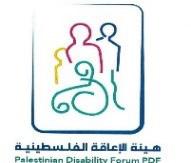
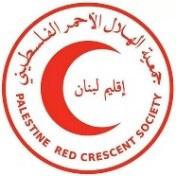

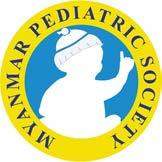

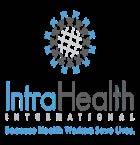



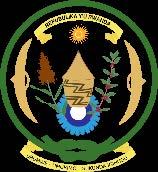
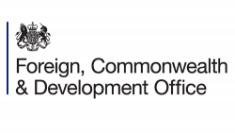
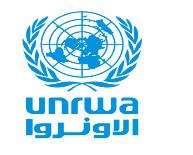
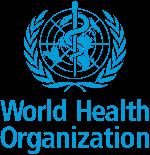
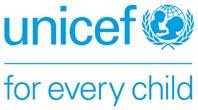
 Photo courtesy of Elizabeth Fitt, Medical Aid for Palestinians
Photo courtesy of Elizabeth Fitt, Medical Aid for Palestinians
www.rcpch.ac.uk/global
The Royal College of Paediatrics and Child Health (‘RCPCH Global’) designs and manages partnership programmes dedicated to improving clinical care and health outcomes for mothers, newborns, children and young people in low- and middleincome countries.
We support health system strengthening through enhancing health workforce capacity and quality improvement processes.
©RCPCH 2023
The Royal College of Paediatrics and Child Health (RCPCH) is a registered charity in England and Wales (1057744) and in Scotland (SC038299).
Royal College of Paediatrics and Child Health
Leading the way in Children’s Health